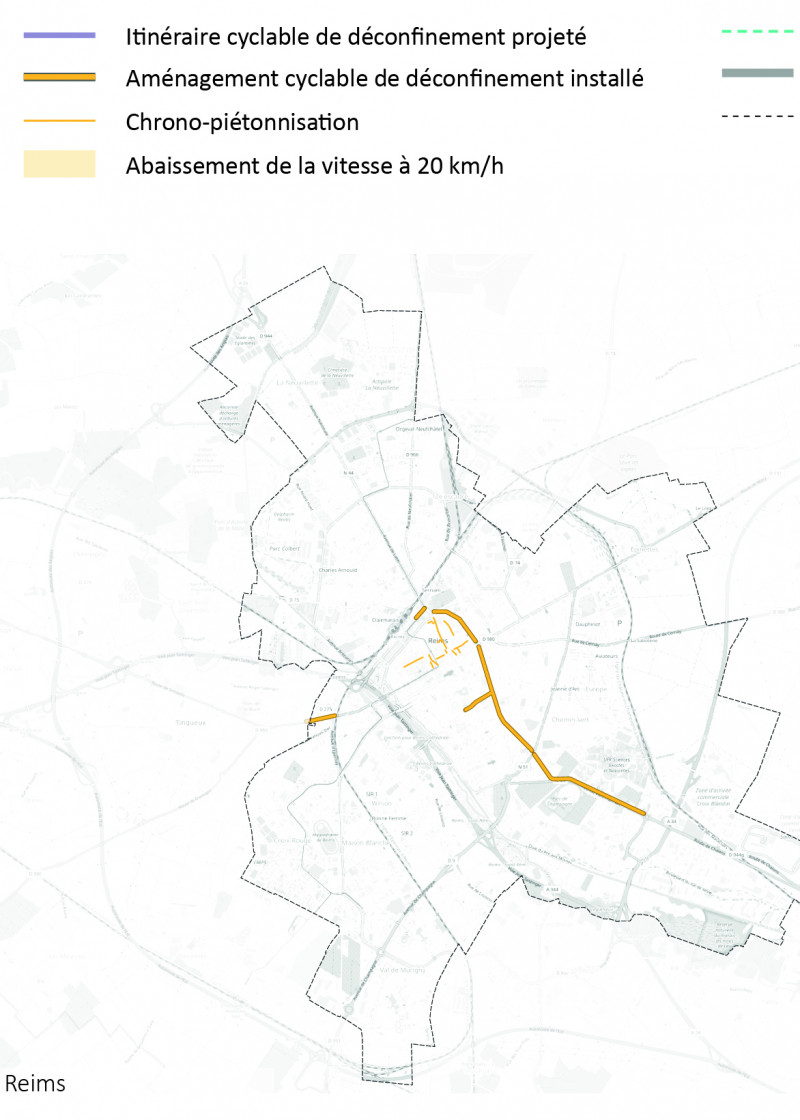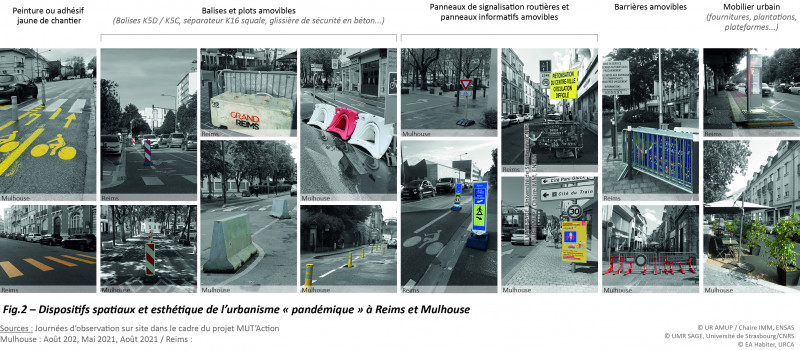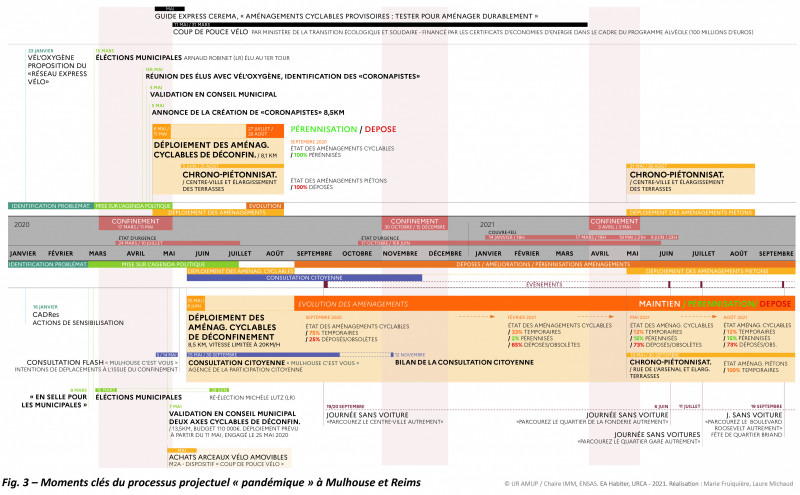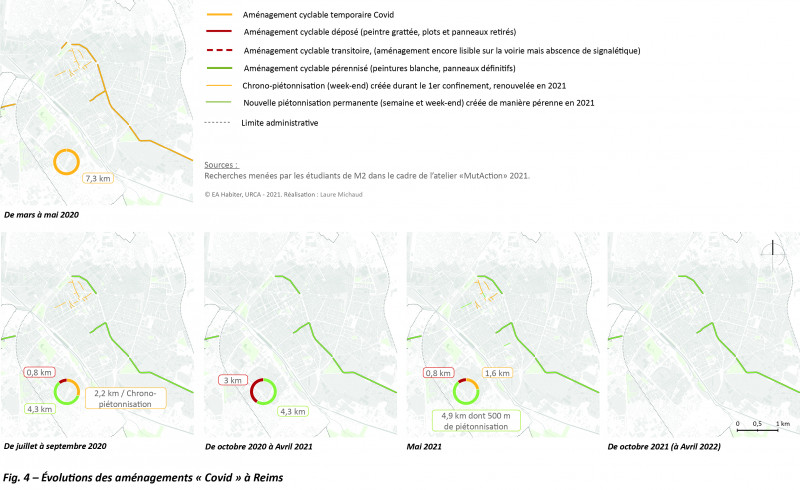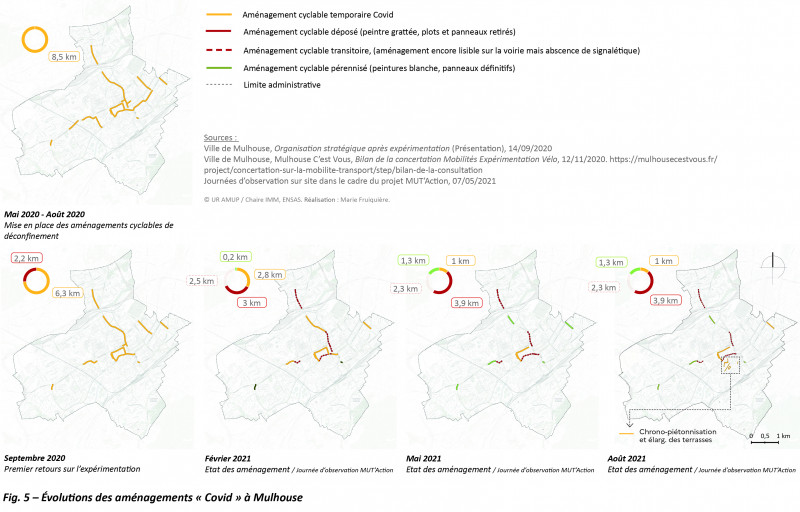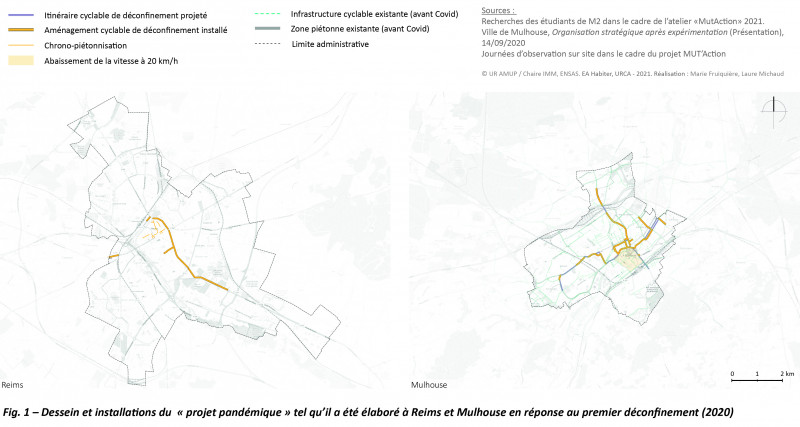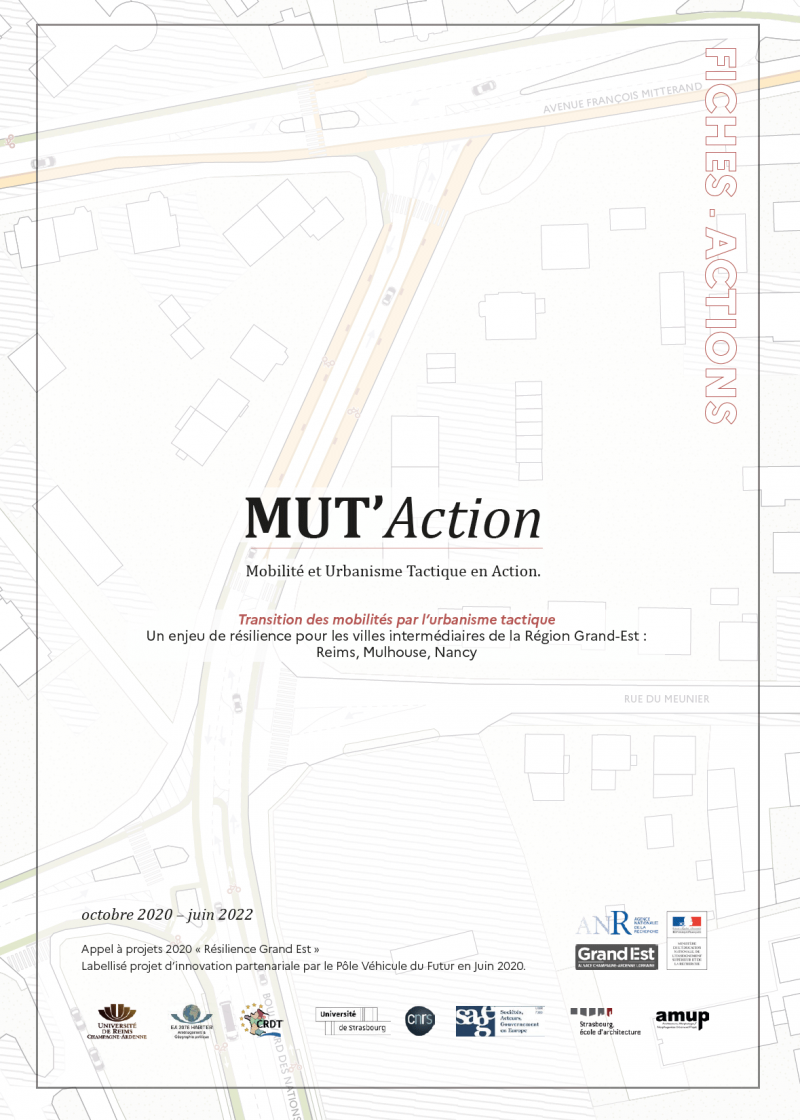Le projet d’urbanisme pandémique, levier de transition de la fabrique urbaine et des mobilités dans les villes intermédiaires ?
Faced with the Covid-19 crisis, various more or less temporary urban developments have appeared since March 2020 in favor of soft mobility modes. And this, not only in the world's major metropolises but also in intermediate cities.
The article discusses the novelty and the opportunities of this pandemic projectual form from three keys of entry: Spatiality / What is the specificity of the spatial design of deconfinement facilities (forms, scales, materiality, etc.)? Temporality / What is the temporality of these actions? What changes have these facilities and methods undergone since the first "major deconfinement" in 2020? Processes and governance / What are the specificities of this project mode in terms of decision-making processes, the interplay of actors, and the knowledge and know-how mobilized?
The presentation will be based on the project of "coronapists" and "chronopiétonnisation" of the city of Mulhouse and Reims (France), mobilizing field studies, analyses of urban planning documents and urban projects under study before and after the first deconfinement, as well as interviews with local actors.
The paper examines the "tactical" scope of this "crisis" project mode, the dynamics of continuity and/or rupture with mobility policies, the mainstream urban fabric and the dynamics of transition as they have been organized in these intermediate cities over the last ten years, as well as the possible articulations with the project registers of strategic foresight, on the one hand, and of operational urban planning, on the other. The objective is to grasp the particularities of the modes of conception and action of the "pandemic project" as an opportunity to support, in the longer term, the ecological transition (and in particular that of mobility) of these intermediate cities.




